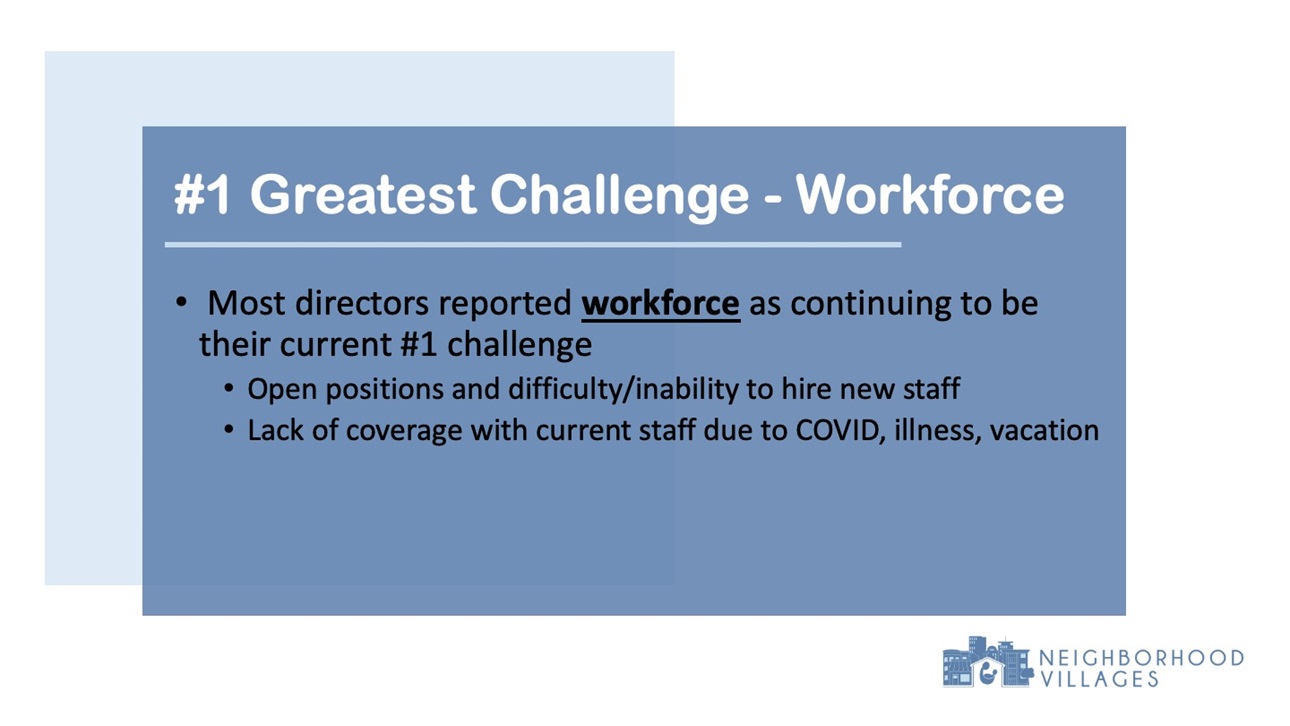When the Bough Breaks, Part 3: Providers Facing a Multi-Pronged Crisis
February 4, 2022
On a day when many parents were scrambling to handle a snow day, the Early Childhood team hosted the third installment of the When the Bough Breaks series of Coffee and Conversations online. The event served as an opportunity to hear providers' perspectives on the ongoing child care-crisis in the Commonwealth, problems that have only been exacerbated by the pandemic, and which have escaped easy solutions.
Associate Vice President for Education to Career Elizabeth Pauley welcomed the audience and introduced the two panelists: Nurtury Early Education President and CEO Laura Perille, and Binal Patel, Chief Program Officer for The Neighborhood Villages. Each shared in stark terms the challenges facing both family child-care operations and larger child-care centers.
Perille, the former Interim Superintendent of Boston Public Schools, highlighted some of the marked differences in resources and support for K-12 education institutions versus early education centers in Massachusetts. She noted the impact on Nurtury's family child-care centers, which typically enroll 6-10 children, are often run by Spanish-speaking Latina women, and serve a clientele that is charged a lower-than-market rate for quality care. As independent businesses, providers manage their own overhead. Families are left to bear the majority of costs and navigate a challenging system to secure subsidies for child care, with just one in five eligible families able to both find child-care seats and complete the paperwork to access the process.
"Bottom line, we have made a societal and governmental commitment and a social contract to provide public funding of K-12 education," Perille said. "This country has never made that commitment to families with young children and children between the ages of zero and 5, and we are seeing the negative impacts on our children, on our society, on our economy, on our workforce and this is the time when we must revisit that question."
Patel echoed Perille's concerns, sharing data from a survey of 50 larger child-care centers across Massachusetts last month. Center administrators cited tremendous difficulties in hiring new workers and retaining existing ones, as low wages, stress, and the additional burdens of managing an ever-changing public health crisis while trying to serve children lower morale and force center operators to cover classes, reduce hours or even unenroll families to make ends meet and meet the state's requirements for quality care.
Many of the issues were already in play pre-pandemic, Patel noted, but COVID has taken the challenges to a new level. Just 15 percent of the centers in her survey said they had not been forced to close classrooms at least temporarily because of positive COVID cases among children and staff, and one center operator estimated that every single COVID case among children at the center created an additional 12 hours of work to manage the administrative needs to report, contact trace, manage, and ensure a safe return of the child to the classroom.
She illustrated a tug of war between families desperately seeking affordable care so they could return to work and center operators needing to find and support staff, maintain required child-teacher ratios and provide safe care. Both sides desire the same goal, but the current situation requires zero-sum choices on matters such as raising fees, reducing hours, or capping enrollments. The mental health toll of the pandemic, too, has been significant. Staff urgently need tools and techniques to best help students experiencing tremendous trauma, and the ability to manage their own trauma and stress themselves.
Both Perille and Patel made a point to highlight some of the more positive dynamics in the sector today. Perille recognized the emerging collaborative partnerships at every level seeking to address the issues, the conversations about and growing understanding of the true cost of care, and the potential of "child care as infrastructure" bills such as Build Back Better and the Common Start bill currently before the Massachusetts legislature.
Long term, though, many challenges remain, particularly in finding staff in what is historically a high-cost but low-wage sector. "This is not a workforce crisis, it's a wage crisis," Patel said.
And she noted the appropriateness of the series title. "This is a broken system," she added. "Without public funding, without public infrastructure... this bough will break."

